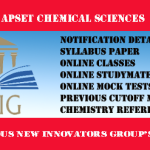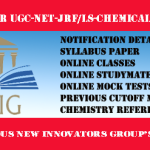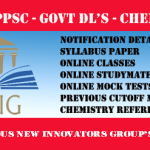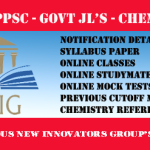General Chemistry by Dr. D. Rama Sekhara Reddy & Dr. G. Naresh Babu
₹200.00
Title of the Book: General Chemistry (Including Practical: Qualitative Analysis of Simple Salt)
Author(s): Dr. D. Rama Sekhara Reddy & Dr. G. Naresh Babu
Book Edition: First
Year of Publication: November, 2025
Publications: Chem Sparrow Publications
No. of Pages: 208
ISBN Number: 978-81-989109-5-0
Book Language: English
Book Weight: 200 grams
Book Price: Rs. 200/-
Description
General Chemistry
(Including Practical: Qualitative Analysis of Simple Salt)
Contents of the Book:
UNIT-1: Atomic Structure and Periodic Table (9 Hours): Electronic configuration – Aufbau principle, Hund’s rule, and Pauli’s exclusion principle. Periodic law and arrangement of elements in the periodic table; horizontal, vertical, and diagonal relationships in the periodic table. Definition and periodic trends of atomic radii, ionic radii, covalent radii, ionization potential, electron affinity, and electronegativity; Pauling scale, variable valency, inert pair effect.
UNIT-2: Ionic Bond (9 Hours): Properties of ionic compounds; factors favouring the formation of ionic compounds. Lattice energy: definition, factors affecting lattice energy, Born-Haber cycle – enthalpy of formation of ionic compounds and stability. Covalent character in ionic compounds – polarization and Fajan’s rules, effects of polarization.
UNIT-3: Covalent Bond: Valence Bond Theory (9 Hours): Hybridization of atomic orbitals and geometry of molecules – BeCl₂, BF₃, CH₄, PCl₅, and SF₆. VSEPR model: Effect of bonding and non-bonding electrons on the structure of molecules – NH₃, H₂O, SF₄, ICl₂⁻, and XeF₄. Molecular Orbital Theory: LCAO method, construction of M.O. diagrams for homonuclear and heteronuclear diatomic molecules (N₂, O₂, CO, and NO).
UNIT-4: Metallic and Hydrogen Bonds (9 Hours): Metallic bond: Metallic properties, free electron theory, and band theory of metals. Explanation of conductors, semiconductors, and insulators. Hydrogen bonding: Intra- and intermolecular hydrogen bonding; influence on the physical properties of molecules. Van der Waals forces and dipole-dipole interactions.
UNIT-5: Nuclear Chemistry (9 Hours): Definition; isotopes, n/p ratio, binding energy, types of radioactivity, Soddy-Fajan’s displacement law, law of radioactivity, radioactive decay series. Nuclear reactions – fission and fusion. Applications of radioactivity in agriculture and medicine.
About the Book:
This book, “General Chemistry (Including Practical: Qualitative Analysis of Simple Salt),” is the first book in the APSCHE Chemistry Major Courses – Book Series. It is designed to serve as a comprehensive foundation text for undergraduate students pursuing Chemistry as a major subject. The book follows the revised APSCHE curriculum, providing a clear, concise, and concept-oriented approach that helps students build a strong base in fundamental principles before advancing to higher-level courses in inorganic, organic, and physical chemistry.
The General Chemistry course is structured into five systematic units and a Practical exercise on Qualitative Analysis of Simple Salts. The units collectively introduce students to the basic principles of atomic structure, chemical bonding, periodic classification, metallic and hydrogen bonding, and nuclear chemistry. Together, these topics lay a strong conceptual foundation for advanced studies in chemistry and help students understand the relationship between atomic-level interactions and macroscopic chemical behavior.
The completion of this book has been made possible through the collective efforts of the editorial and academic teams, whose dedication to quality and accuracy ensured that the content aligns with the APSCHE curriculum framework. We express our sincere gratitude to all faculty members, reviewers, and contributors who provided their valuable feedback and insights.
Through this series, our aim is to strengthen the foundation of chemical education in Andhra Pradesh by offering accessible, well-structured, and exam-oriented resources that foster analytical thinking and scientific curiosity. We hope that this book, General Chemistry (Course–1), will serve as a reliable guide and an inspiring companion for both students and educators, paving the way for deeper exploration of the fascinating world of chemistry.
— Authors
Dr. D. Rama Sekhara Reddy
Dr. G. Naresh Babu
About the Author(s):
Lt. Dr. D. Rama Sekhara Reddy has been serving as a Head-Department of Chemistry, at Krishna University, Machilipatnam-521004, Andhra Pradesh, India. After taking over as Head of the Department, He has initiated several academic reforms such as Training programs, Guest lectures, Seminars, Workshops, and Conferences to enrich the culture of research and teaching. He believes that a classroom should be a base for the complete personality development of a student. With this in mind, he strived to promote sports and cultural activities in the Department.
Dr.D. Rama Sekhara Reddy received graduation (B.Sc.) from V.R. College, Nellore in the year 1998. He obtained a post-graduation (M. Sc) from Acharya Nagarjuna University, Guntur in the year 2001 and he obtained his Ph.D. from the Department of Organic Chemistry, Andhra University, Visakhapatnam, in the year 2009. During his Doctoral Program, he worked as JRF in a DST-sponsored project under the guidance of Prof. R. Venkateswarlu. After completing his doctoral degree in the area of Natural products Chemistry in 2009 from India, he worked as a Post-Doctoral Fellow at the Institute of Biological Chemistry, Washington State University, WA, USA from 2009-2011and continued as a Post-Doctoral Research Associate at the Centre for Pharmacology, Pharmaceuticals, and Pharmacology, The University of Trans-Disciplinary Health Sciences & Technology (Formerly named I-AIM), Bangalore, K.A, India from 2011-2012. Later in the year 2012, he joined as an Assistant Professor in the Department of Chemistry, at GITAM University, Visakhapatnam, A.P, India. Further in the year 2013, he joined as an Assistant Professor in the Department of Chemistry, at Krishna University, Machilipatnam, A.P, India. Currently, he is acting as Head of the Chemistry Department.
Dr. Naresh Babu Gatchakayala has been serving as a Senior Assistant Professor in the Department of Chemistry at Aditya University, Surampalem-533437, Andhra Pradesh, India. Dr. Naresh Babu Gatchakayala completed his graduation (B.Sc.) from Acharya Nagarjuna University, Guntur, in 2008. He obtained a post-graduation (M.Sc.) from Andhra University, Visakhapatnam, in 2011. He cleared the CSIR-UGC-NET under the Lectureship (LS) category with an All India 33rd rank in the December 2012 session. In the same year, he also qualified in the Andhra Pradesh State Eligibility Test (APSET-2012). In 2011, he joined as the CSIR-UGC-NET Chemical Sciences Subject Coordinator in the Department of Chemistry at JMJ College for Women, Tenali, A.P., India. In 2018, he took up the same role at K.V.R., K.V.R., and M.K.R. College, Khajipalem, A.P., India. He was awarded his Ph.D. under the supervision of Dr. D. Rama Sekhara Reddy from the Department of Chemistry, Krishna University, Machilipatnam, in 2023. He also worked with the “Dr. Chepuri Venkata Ramana Research Group” at CSIR-National Chemical Laboratory, Pune, India, as part of his research. Currently, he is a Senior Assistant Professor in the Department of Chemistry at Aditya University, Surampalem, India.
Dr. Naresh Babu Gatchakayala is recognized as one of the leading resource persons in the fields of teaching, research, and consultancy. He has more than 10 years of teaching experience. His primary teaching interests include Inorganic, Organic, and Physical Chemistry, while his main research areas focus on Nanochemistry and Synthetic Organic Chemistry. He has published 11 research papers in various national and international journals with significant scientific recognition.
BOOK PUBLISHED BY:
Chem Sparrow Publications
Flat No. 216, Oak Mont Apartment,
Horamavu, Bengaluru, Karnataka,
560043, India
BOOK MARKETED BY:
Laborious New Innovators Group’s
LNIG PUBLICATIONS, GUNTUR,
Contact Number: 91+ 8099871707.
Contact mail ID: [email protected]






Reviews
There are no reviews yet.